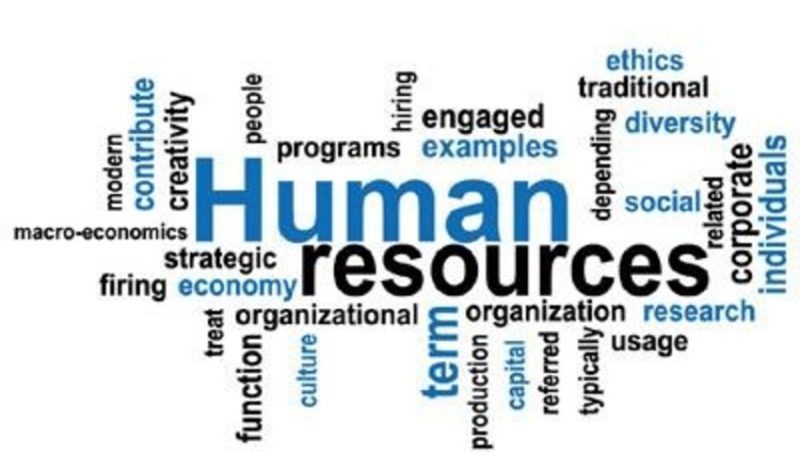In today’s ever-changing business landscape, human resources (HR) plays a pivotal role in organizational success. The continuous evolution of the workforce and workplace dynamics necessitates a proactive approach to evaluate and enhance HR processes. This comprehensive guide explores various facets of KSA HR Agencies, offering actionable insights for organizations aiming to optimize their HR workflows.
Understanding the HR Workflow
Defining the HR workflow goes beyond the surface-level understanding of recruitment and onboarding. It involves dissecting the interconnected processes that span the entire employee lifecycle. From talent acquisition and training to performance management and compliance, each component contributes to the overall efficiency of HR operations.
The Importance of Evaluation
The journey towards enhancement begins with a critical evaluation of existing HR practices. This involves not only assessing the efficiency of processes but also delving into the employee experience. Understanding the pain points and challenges faced by employees provides a roadmap for targeted improvements.
Enhancement Strategies
The infusion of technology into HR processes is a game-changer. Applicant tracking systems, performance management tools, and analytics platforms streamline operations, allowing HR professionals to focus on strategic initiatives. Leveraging these technologies enhances overall efficiency and reduces the administrative burden.
1. Training and Development Programs
In the dynamic landscape of HR, staying updated is paramount. Continuous training programs ensure that HR professionals are equipped with the latest knowledge in compliance, industry trends, and technological advancements. This not only enhances individual skills but also contributes to the overall growth of the HR team.
2. Streamlining Recruitment Processes
The recruitment process is the gateway to building a high-performing team. Incorporating automation, such as AI-powered resume screening, expedites the hiring process without compromising on the quality of talent acquisition agencies and their database. A streamlined recruitment process contributes to organizational agility.
Employee Engagement Initiatives
- Fostering a Positive Work Culture
A positive work culture is the cornerstone of employee satisfaction and retention. HR initiatives aimed at fostering a positive work environment, such as team-building activities and recognition programs, contribute to a motivated and engaged workforce.
- Feedback Mechanisms
Regular feedback is a two-way street. Implementing mechanisms for employees to provide feedback on HR processes and overall workplace experiences promotes open communication. It also allows HR professionals to address concerns promptly and make data-driven improvements.
Data-Driven Decision Making
- Leveraging HR Analytics
The era of big data extends to HR. Analytics provides valuable insights into employee performance, recruitment success rates, and areas for improvement. HR professionals can make informed decisions backed by data, leading to more effective strategies and outcomes.
- Predictive Analysis for Talent Management
Predictive analytics takes HR a step further by forecasting talent needs and identifying potential issues before they escalate. This proactive approach allows organizations to strategically plan for future workforce requirements.
Ensuring Compliance
The regulatory landscape surrounding HR is dynamic. Staying informed about changes in labor laws and compliance requirements is crucial to avoid legal issues and maintain ethical HR practices. Regular updates and training programs ensure ongoing compliance.
Implementing Ethical Practices
- Ethical practices form the foundation of a trustworthy HR department.
- Fair treatment, non-discrimination, and transparency are essential elements.
- Consistently implementing ethical practices helps build trust with employees and stakeholders.
Measuring Key Performance Indicators (KPIs) Success
Establishing clear KPIs is instrumental in measuring the success of HR initiatives. Metrics such as time-to-fill for open positions, employee satisfaction scores, and retention rates provide tangible indicators of HR effectiveness. Regularly reviewing KPIs allows organizations to adapt strategies based on real-time data.
Challenges in HR Process Evaluation
- Overcoming Resistance to Change
Change is often met with resistance. Effectively communicating the rationale behind HR changes, involving employees in the process, and displaying the benefits are essential steps in overcoming resistance to change. - Balancing Automation and Human Touch
While automation enhances efficiency, maintaining a human touch is crucial. HR processes involve personal interactions, and striking the right balance between technology and human connection ensures a holistic approach to employee relations.
Future Trends in HR
- AI and Machine Learning Integration
The integration of artificial intelligence (AI) and machine learning (ML) is reshaping the future of HR. From predictive analytics for talent acquisition to personalized employee experiences, these technologies open new possibilities for HR professionals. - Remote Work and HR Dynamics
The rise of remote work has transformed HR dynamics. HR processes now need to adapt to the challenges and opportunities presented by a distributed workforce. This includes rethinking traditional performance management strategies and creating virtual engagement initiatives.
Conclusion
Evaluating and enhancing the HR process is not a one-time endeavor but a continuous journey. By integrating technology, prioritizing employee engagement, staying compliant, and adapting to future trends, organizations can create an agile and effective HR ecosystem. As the HR landscape evolves, embracing change and fostering a culture of continuous improvement ensures that organizations remain competitive in attracting, retaining, and developing top talent.
FAQs
What are the key benefits of evaluating the HR process?
Regular evaluation leads to increased efficiency, improved employee satisfaction, and better organizational outcomes.
How can small businesses enhance HR processes on a budget?
Small businesses can leverage cost-effective technologies, prioritize key areas for improvement, and focus on employee development.
Is employee engagement crucial for HR success?
Yes, employee engagement is pivotal as it directly impacts retention, productivity, and organizational culture.
What role does technology play in modern HR processes?
Technology streamlines operations, enhances efficiency, and allows HR professionals to focus on strategic initiatives.
How often should HR processes be re-evaluated?
Regular re-evaluation is essential, with the frequency determined by organizational needs, industry changes, and technological advancements.
Author Bio:
Wajahat Hussain is a content writer and digital marketing specialist with a passion for technology and SEO. With 5+ years of experience in the industry, Wajahat Hussain has helped businesses of all sizes achieve their online goals through strategic content creation, social media management, and search engine optimization. In addition to writing for various tech blogs and publications, Wajahat Hussain also shares insights and tips on SEOTechGuru.com where readers can find useful resources on digital marketing, SEO, finance, recruitment agencies for Saudi Arabia In Pakistan, accounting and technology trends.

Aimee Garcia is a senior editor at ReadDive. She has 5+ years of experience in Digital Marketing. She has worked with different IT companies.





